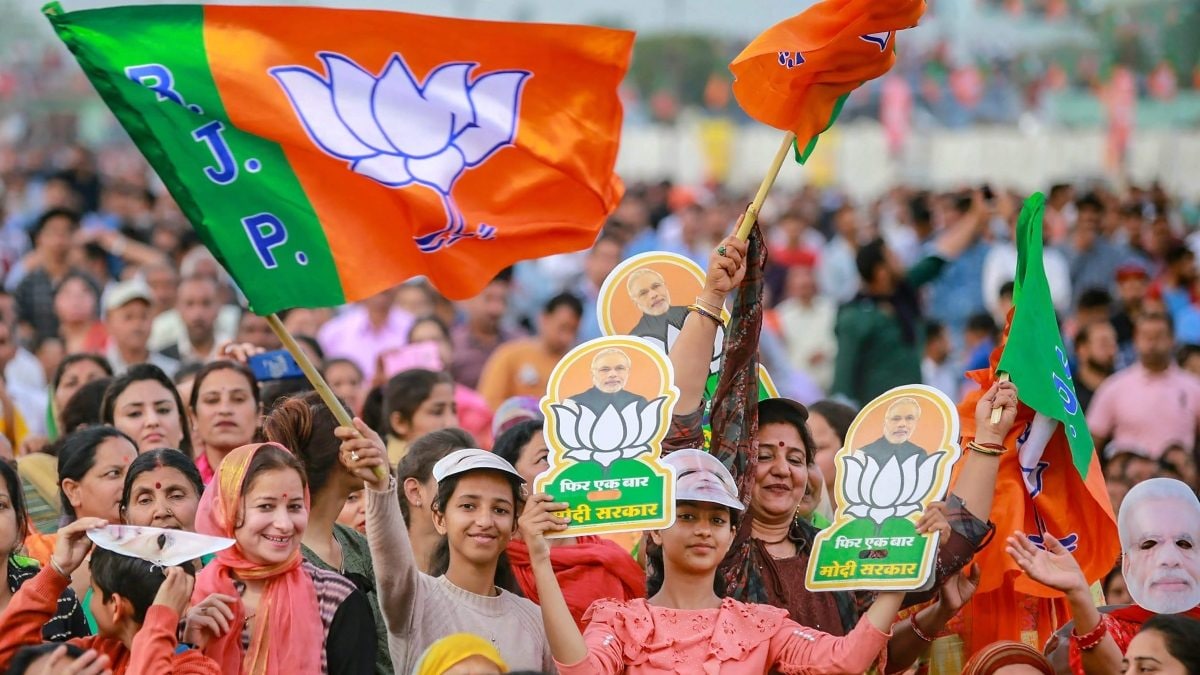 |
|
The Jharkhand Assembly elections held in two phases concluded recently, and the anticipation for the results on November 23rd is palpable. Exit polls released on November 20th paint a picture of a potential landslide victory for the Bharatiya Janata Party (BJP) and its National Democratic Alliance (NDA) partners. While the ruling Jharkhand Mukti Morcha (JMM)-led coalition, headed by Chief Minister Hemant Soren, maintains confidence in its performance, the overwhelming consensus amongst exit polls points towards an NDA majority. This presents a significant shift in the state's political landscape, particularly given the JMM's current hold on power.
Most exit polls, including Matrize, Times Now, and People's Pulse, project a clear win for the NDA, predicting seat counts ranging from 42 to 53. These predictions suggest a comfortable majority in the 81-member Assembly. However, AXIS-My India stands out as an outlier, forecasting a victory for the JMM-Congress alliance with 53 seats. This discrepancy highlights the inherent uncertainties and potential inaccuracies associated with exit polls, emphasizing the need to await the official results. The varying predictions underscore the complexity of the electoral landscape and the challenges in accurately gauging voter sentiment.
The BJP's narrative centers on a widespread anti-corruption sentiment and a desire for a change of governance. Prominent BJP leaders like Arjun Munda, Babulal Marandi, and Shivraj Singh Chouhan have publicly voiced this claim, criticizing the JMM-Congress government's performance over the past five years. They assert that issues like infiltration and ineffective governance have contributed to public dissatisfaction. The BJP’s campaign heavily emphasized these issues, hoping to capitalize on voter discontent. Their internal surveys, they claim, predict an even more decisive victory, with a potential 51 seats for the NDA.
Conversely, the JMM and its allies in the INDIA alliance express unwavering confidence. Chief Minister Hemant Soren emphasizes the enthusiastic support garnered from all segments of the population. Congress leader Rajesh Thakur highlights the strong female voter turnout and positive feedback received during the election process as indicators of a potential stronger performance than in the previous election. This conflicting outlook underscores the challenges in interpreting pre-election indicators and the need to approach exit poll predictions with caution. The final results will offer a clearer understanding of the actual voter preferences and trends.
The coming days will be crucial as the state awaits the official results. The contrast between the confident pronouncements of both the ruling coalition and the opposition highlights the highly competitive nature of Jharkhand's political environment. Regardless of the final outcome, the election has already sparked considerable debate and analysis on the prevailing social and political dynamics within the state. The official results will not only determine the next government but also provide valuable insights into the evolving political preferences of the Jharkhand electorate. The varying predictions from the exit polls, while offering a glimpse into potential outcomes, ultimately underscore the importance of waiting for the official count. The official results will bring a definitive conclusion to the much-anticipated election cycle.
Beyond the immediate political consequences, the Jharkhand election results will have broader implications. The outcome will influence the national political landscape, providing insights into regional power dynamics and the effectiveness of different campaign strategies. The performance of the INDIA alliance, especially given its national significance, will be closely scrutinized. Furthermore, the election serves as a significant test of public sentiment regarding issues such as corruption, governance, and economic development, offering valuable insights for policymakers and political strategists. The attention given to this election, both nationally and regionally, underscores its importance in the broader Indian political context.
The contrasting statements from both sides highlight a deep division within the state's political landscape. While the BJP emphasizes a rejection of the incumbent government's policies and an aspiration for change, the JMM highlights strong public support and a continuation of existing policies. The coming days will unravel this conflict, revealing whether the exit polls accurately reflect the sentiment of the electorate. The period between the exit poll release and the official result announcement creates an atmosphere of anticipation and speculation, underscoring the importance of election outcomes in shaping the future of the state and its governance.
Ultimately, the Jharkhand election results will serve as a case study in the complexities of Indian politics, offering insights into the effectiveness of different campaign strategies, the role of regional factors, and the influence of national political trends. The official count will offer a definitive answer to the questions raised by the exit polls, settling the uncertainty and determining the trajectory of Jharkhand's political future. The close scrutiny of the election results, both at the state and national levels, highlights its significance in the broader political narrative of India.
Source: People Voted Against Corruption, Says Buoyant BJP As Exit Poll Results Give Party Edge In Jharkhand
